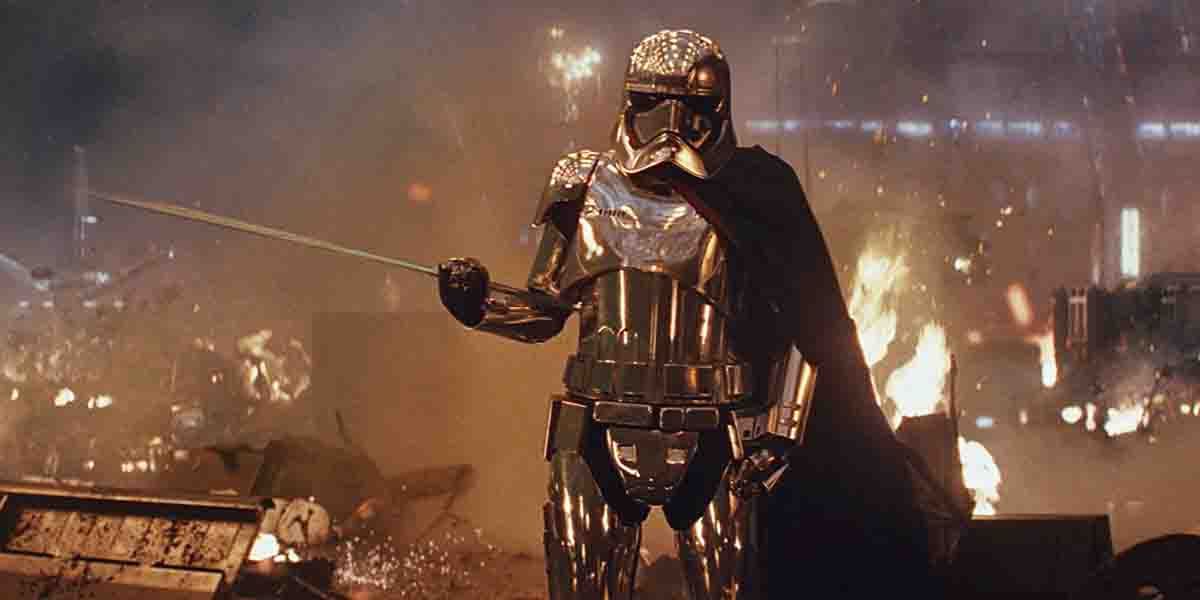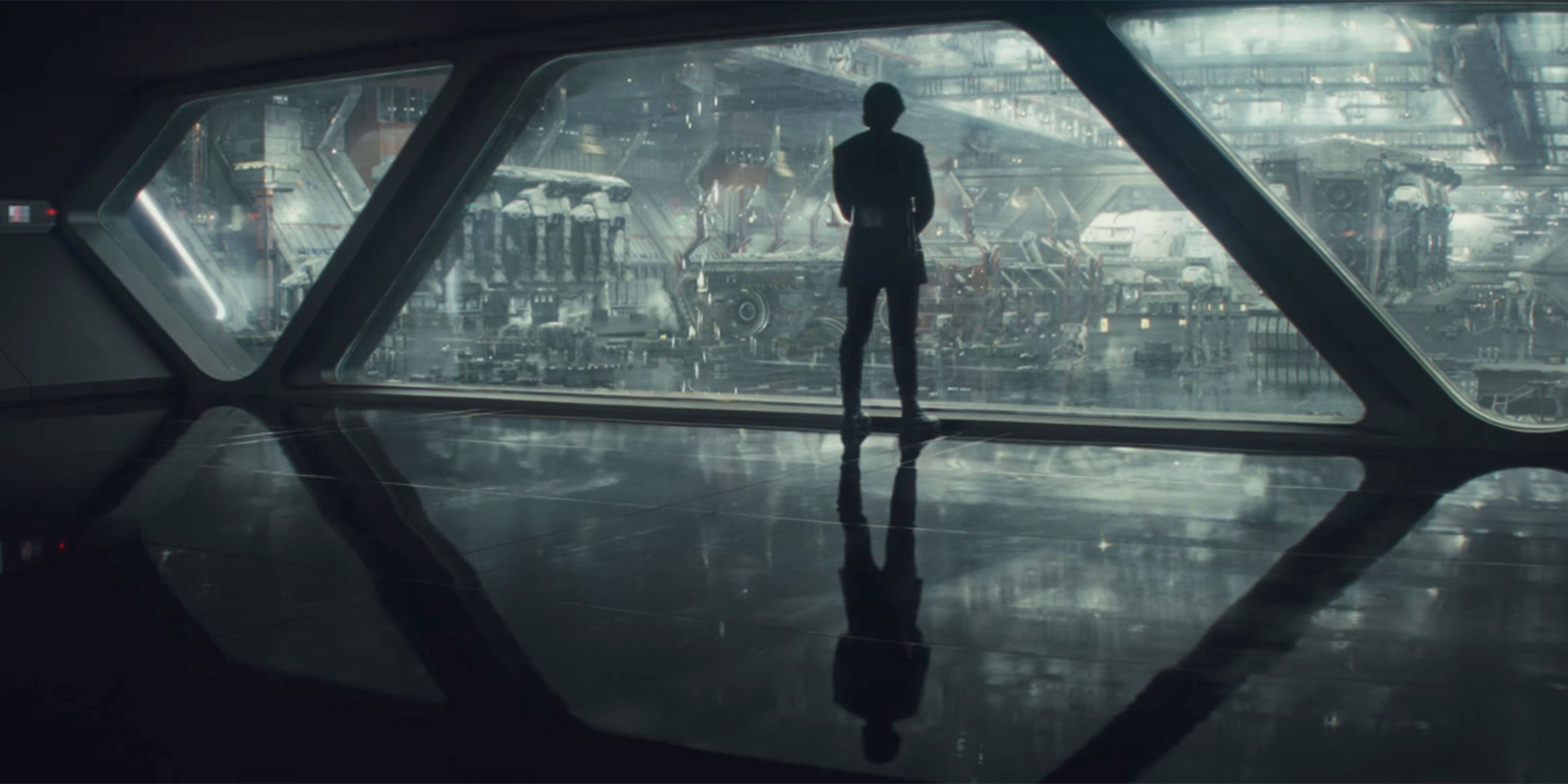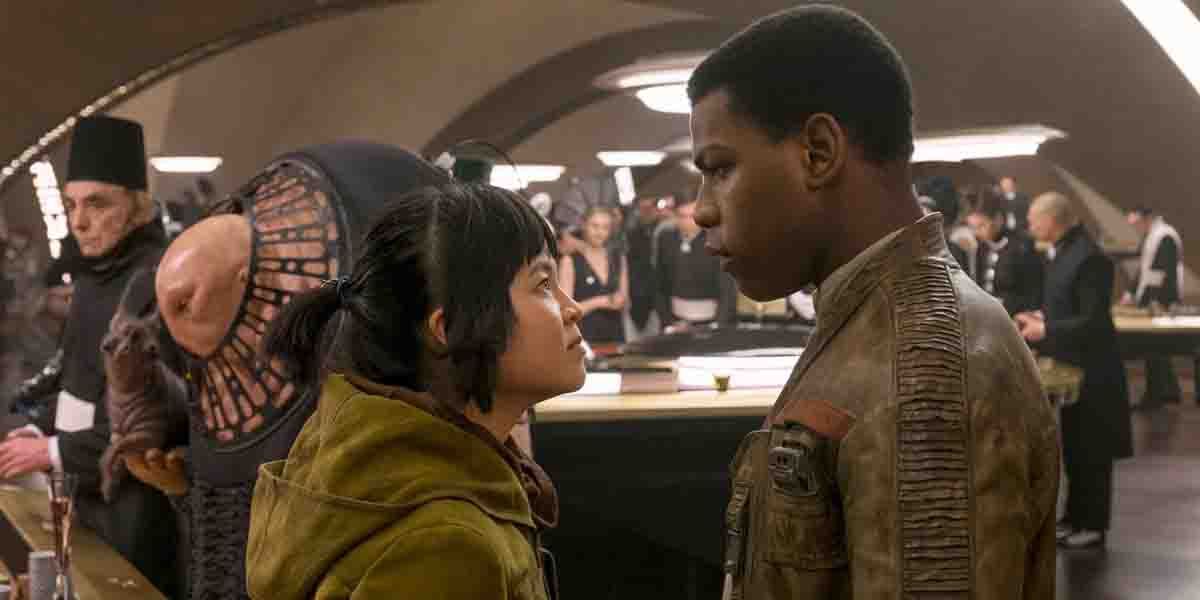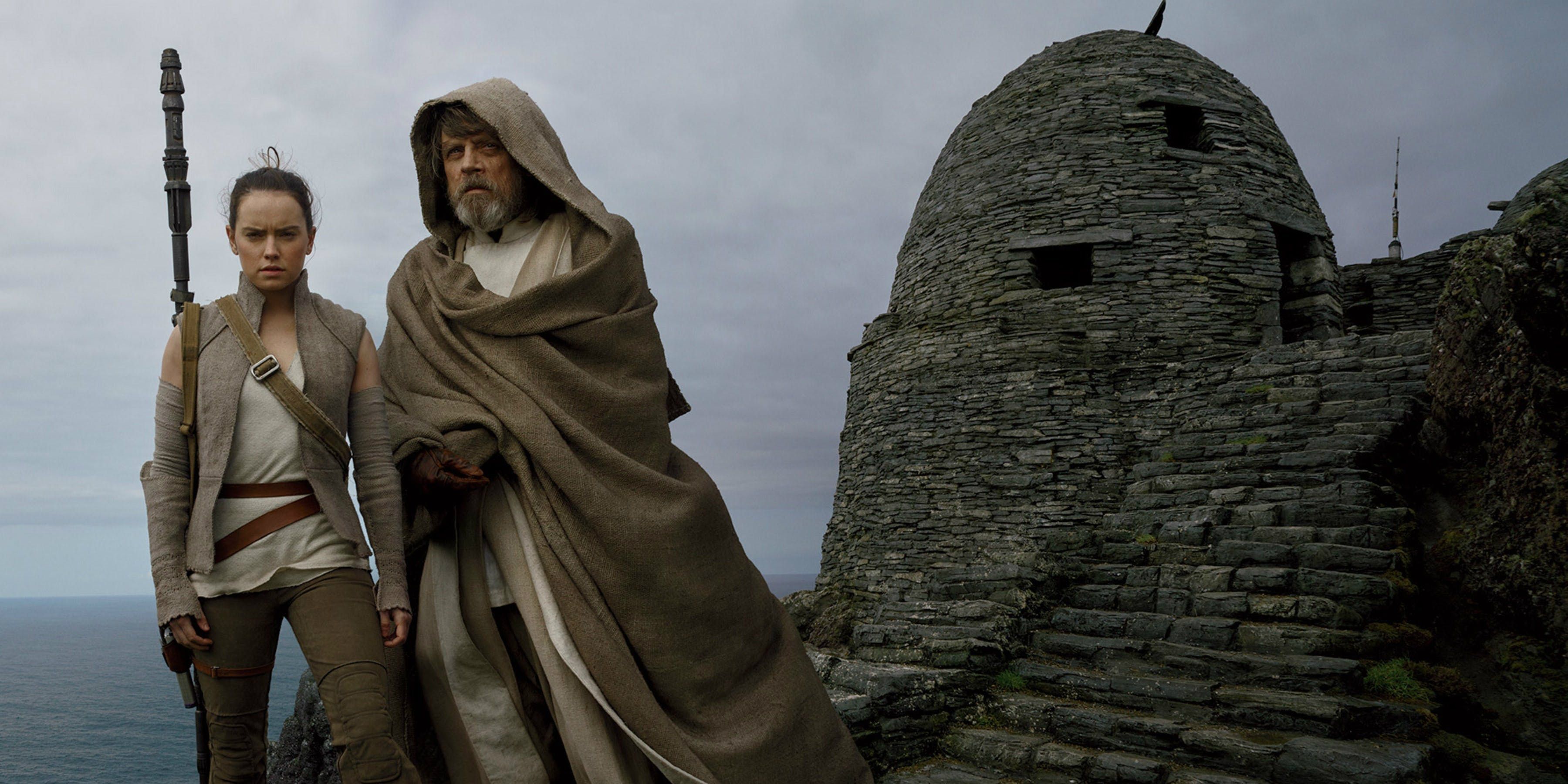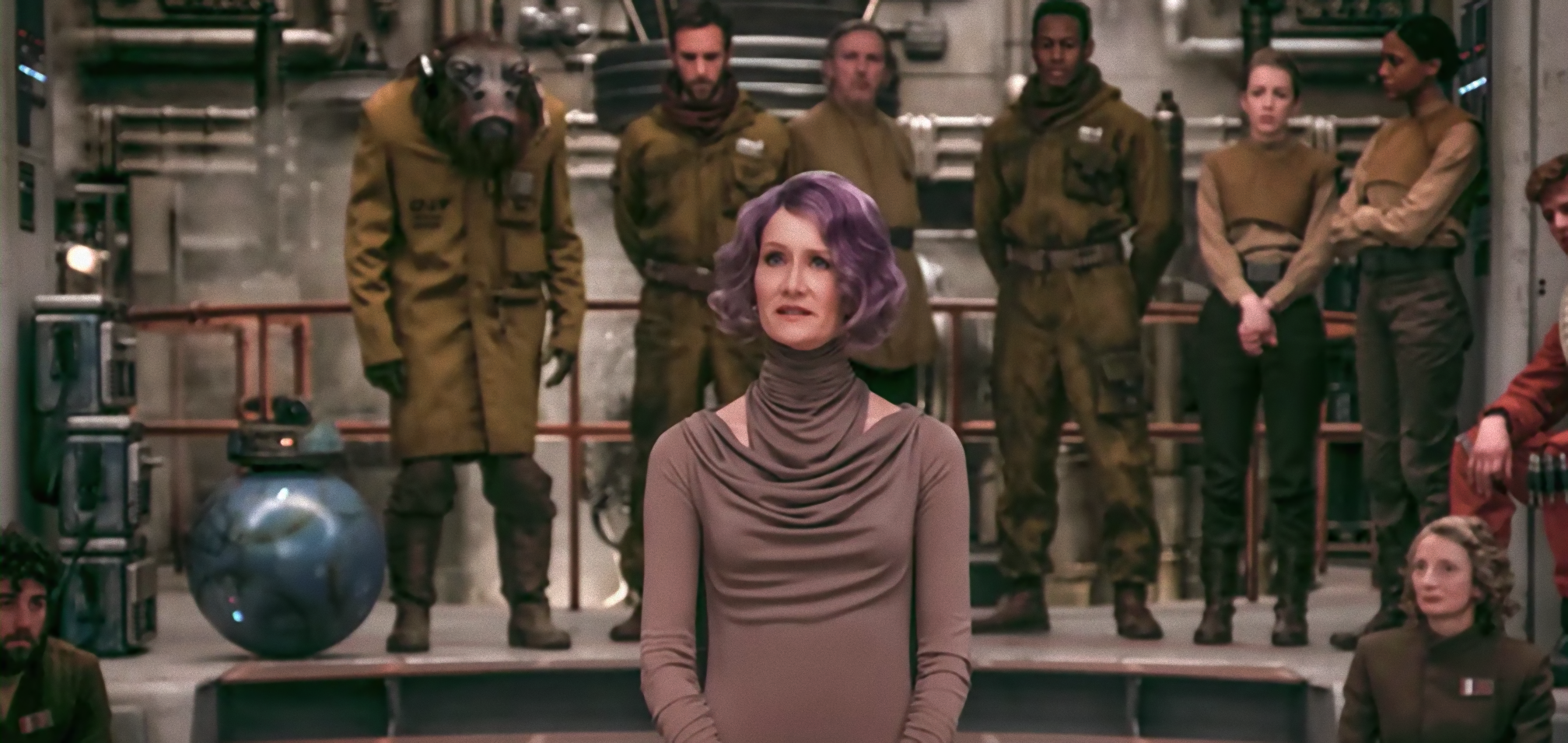WARNING: The following article contains spoilers for director Rian Johnson's Star Wars: The Last Jedi, in theaters now.
Despite dividing the fanbase, Star Wars: The Last Jedi is an undisputed critical and commercial success. And a lot of the love the film has been shown owes to its progressive aspects, and its willingness to break away from the trilogies of old. Simply put, writer/director Rian Johnson successfully created a Star Wars film for a new generation; even if his execution is sometimes lacking, his ambition is spot on.
RELATED: Star Wars: The Last Jedi – Rian Johnson Responds to Fan Backlash
Despite becoming sidetracked in the trilogies by trade disputes and parliamentary procedure, George Lucas was keen to chronicle the fall of democracy and the rise of fascism ("So this is how liberty dies ... with thunderous applause"). But with The Last Jedi, Johnson explores the politics of a galaxy far, far away like never before. It's not only about the ethnically diverse cast, but about thought-provoking statements on issues that resonate in the real world.
The Realities of War
In their search for a codebreaker to help them sneak aboard Supreme Leader Snoke's flagship, Finn and Rose Tico travel to the casino city Canto Bight, a playground for the fabulously wealthy seemingly far removed from the conflicts ravaging the galaxy. However, as Finn and Rose soon discover, these one-percenters aren't oblivious to the war -- they're profiting from it.
RELATED: Where Does Star Wars Go After The Last Jedi?
As they flee the city's police with their shady new ally "D.J.," Rose and Finn learn they've stolen a ship belonging to an arms dealer who sells weapons and technology to both the First Order and the Resistance. The hacker then explains the ethics of war to the naive young rebels: These dealers play both sides, ensuring there's a constant demand for what they supply.
Economic Inequality
In Canto Bight, the wealthy spend their leisure time gambling, drinking and having their every need and desire attended to as they rub elbows with politicians and celebrities. But there's another side to the glistening resort city, one where the fathiers -- the enormous "space horses" used in high-stakes races -- are beaten and penned into tight quarters, and attended by children left behind by losing gamblers.
RELATED: It’s Official: The Last Jedi Secured the Second-Highest Opening, Ever
It demonstrates the wide chasm that exists between the galaxy's haves and have-nots, the greedy and the needy. It reminds Rose of her own home on Hays Minor, the impoverished mining colony exploited for its resources -- both the minerals and the people. It's a stark reminder that classism is indeed universal.
Page 2: [valnet-url-page page=2 paginated=0 text='Last%20Jedi%27s%20Take%20on%20Feminism%20%26%20Religion']
Religion
In elaborating on the Jedi religion, Luke Skywalker addresses the vanity of the Order, its selfishness about the teachings of the Force, and how he considers the Jedi just as bad as the Sith. In short, he explains to Rey that institutions of faith tend to teach through fear and inspire through terror. And these religions will only breed hatred and darkness.
RELATED: Last Jedi: [SPOILER]’s Last Prank On Luke Explained
That's what fueled the war between Jedi and Sith for ages, and it's the reason Luke wants the Jedi to end. He doesn't envision the galaxy being free as long as such religious shackles are in place. As Luke sees it, religions deal in absolutes, and at some point that leads to poor judgment. Sometimes, that can even drive followers to carry out horrible acts. Basically, he tells Rey that when it comes to making the universe a better place, we don't need religion, just a pure heart.
A Feminist Agenda
There's nothing wrong with having a feminist agenda, and The Last Jedi prides itself on that. The Force Awakens kick-started things with the idea of Rey as the new Chosen One, and General Leia marshaling the entire Resistance. That marked a big step up from Lucas' male-dominated stories. Johnson, though, pushed the movement into overdrive with more strong, heroic women.
RELATED: Admiral Holdo Is Star Wars: The Last Jedi’s True Hero
Rose is a genius engineer who bravely follows in her sister's footsteps by joining the front lines. She even saves Finn from a suicide mission, teaching him about love and living to fight another day. Then there's Vice Admiral Holdo, who educates the hotshot Poe Dameron on what it means to be a leader. She doesn't take his lip, and much like Leia, she looks at the bigger picture, not just a single battle. Holdo's sacrifice to save the Resistance actually ends up being one of the biggest moments in Star Wars history, affirming that the galaxy's future, and its freedom, is indeed in the hands of admirable and powerful women.
Written and directed by Rian Johnson, Star Wars: The Last Jedi stars Mark Hamill as Luke Skywalker, Daisy Ridley as Rey, John Boyega as Finn, Adam Driver as Kylo Ren, Oscar Isaac as Poe Dameron, Andy Serkis as Supreme Leader Snoke, Domhnall Gleeson as General Hux, Gwendoline Christie as Captain Phasma, Anthony Daniels as C-3PO, Lupita Nyong’o as Maz Kanata, Benicio Del Toro as ‘DJ’, Kelly Marie Tran as Rose Tico, Laura Dern as Vice Admiral Amilyn Holdo, and the late Carrie Fisher as General Leia Organa. The film is in theaters worldwide.

